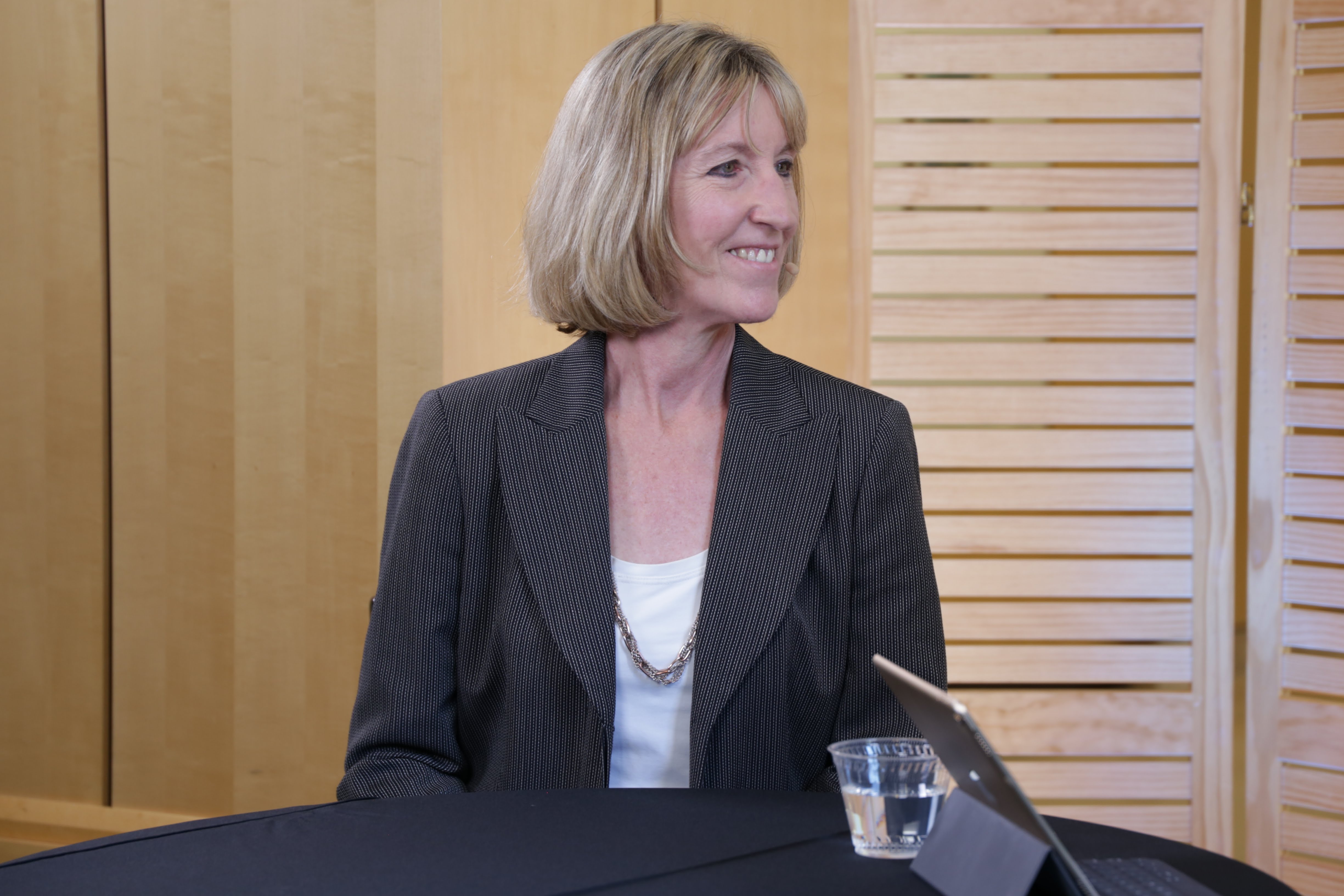 WOMEN IN TECH
WOMEN IN TECH
 WOMEN IN TECH
WOMEN IN TECH
 WOMEN IN TECH
WOMEN IN TECH
With the decades-long rumors of tech’s data tsunami rapidly coming to fruition, everyone from data scientists to enterprises are scrambling to resolve the unforeseen issues arising from digital transformation. The solution to a number of these, including limited data analysis perspectives, inefficient problem solving, and the industry’s talent shortage lies in improved diversity in science, technology, engineering and math careers.
“When Margot [Gerritsen] had the idea to start WiDS, I actually thought, ‘What a great way to bring women together at Stanford.’ I clearly did not expect that it would turn into this global phenomenon,” said Ruth Marinshaw (pictured), chief technology officer of research computing at Stanford University.
Now in its third year and growing exponentially with participation around the globe, the Global Women in Data Science Conference is creating a community of women around the world to support one another and diversity efforts across the industry as a whole.
Marinshaw spoke with Lisa Martin (@LuccaZara), host of theCUBE, SiliconANGLE Media’s mobile livestreaming studio, during the Global Women in Data Science Conference in Stanford, California. They discussed the impact of WiDS at Stanford and beyond, as well as where Marinshaw sees the work of the community focusing next. (* Disclosure below.)
In her six years as CTO for research computing at Stanford, Marinshaw has nurtured cross-campus collaborations with the school’s Institute for Computational and Mathematical Engineering. “We help them with training opportunities … do some collaborative planning, event promotion, sharing of ideas, we have joint office hours where we can provide system support … to some thousands of users across the campus,” she said.
Stanford’s background in data science and interdisciplinary research paired with Marinshaw’s focus on collaborative communities has made the campus an ideal hub for the WiDS network, which has grown to more than 100,000 people this year. “It’s really a very powerful statement and demonstration of the importance of community, building technical teams, making … people comfortable and feeling like they’re not alone,” Marinshaw said.
Despite WiDS’ rapid international growth, women remain a minority in the industry, limiting potential for individuals, as well as data science overall. With its rising potential for social impact, data science needs diversity more desperately than ever. “Data science provides such a great opportunity not just to have the traditional STEM fields participating, but really to leverage the ethicists and the humanists and the social sciences so we have the diversity of opinions shaping decision making,” Marinshaw said.
The WiDS community seeks to expose more women to STEM careers and provide pathways for the range of professional options available in the industry. “It’s not just about coding. … It helps broaden the perspective about where you can take your skills in data science and also expose you to the full range of skills needed to make a good data science team,” Marinshaw said.
WiDS isn’t only interested in cultivating new talent; it aims to reinvigorate women who have long worked in the STEM field. Marinshaw has found inspiration in the words of WiDS speakers and the opportunities for mentor relationships offered by the global community. “You’re not in it alone. To be connected to all of these women across generations is really invigorating,” she concluded.
Watch the complete video interview below, and be sure to check out more of SiliconANGLE’s and theCUBE’s coverage of the Global Women in Data Science Conference. (* Disclosure: TheCUBE is a paid media partner for the Women in Data Science Conference. Neither Stanford University, the event sponsor, nor other sponsors have editorial control over content on theCUBE or SiliconANGLE.)
Support our open free content by sharing and engaging with our content and community.
Where Technology Leaders Connect, Share Intelligence & Create Opportunities
SiliconANGLE Media is a recognized leader in digital media innovation serving innovative audiences and brands, bringing together cutting-edge technology, influential content, strategic insights and real-time audience engagement. As the parent company of SiliconANGLE, theCUBE Network, theCUBE Research, CUBE365, theCUBE AI and theCUBE SuperStudios — such as those established in Silicon Valley and the New York Stock Exchange (NYSE) — SiliconANGLE Media operates at the intersection of media, technology, and AI. .
Founded by tech visionaries John Furrier and Dave Vellante, SiliconANGLE Media has built a powerful ecosystem of industry-leading digital media brands, with a reach of 15+ million elite tech professionals. The company’s new, proprietary theCUBE AI Video cloud is breaking ground in audience interaction, leveraging theCUBEai.com neural network to help technology companies make data-driven decisions and stay at the forefront of industry conversations.